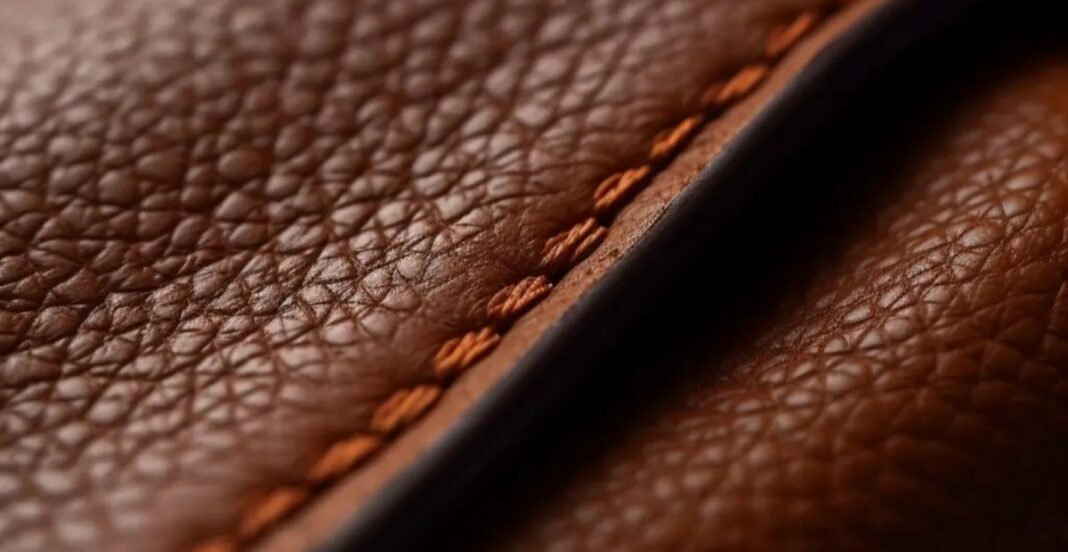Leather embodies elegance, comfort, and quality workmanship. Among all types of leather, people usually consider split leather the most practical and adaptable. If you are in the fashion business, do upholstery work, or make shoes, knowing the subdivisions of split leather is of utmost importance.
This article focuses on everything regarding split leather from its types to advantages and how it measures up to the other leather types.
Table of contents
What exactly is Split Leather?
Split leather is made from the lower parts of the hide after the top grain of the leather has been sliced off. Unlike full-grain leather and top-grain, split leather does not have any natural grain and usually needs to have finishing done to make it look better as well as to make it tougher.
Most manufacturers cover split leather with layers of polyurethane or emboss them so they can look like genuine leather. While split leather does not have the toughness of full-grain leather, it is much cheaper and affordable for use in many different industries.
The Steps in the Making of Split Leather
The making of split leather starts with raw animal hides, most commonly taken from cows. The hide goes through different stages:
- Splitting: The tanner splits a thick hide into two layers. The top layer becomes full-grain leather, while the lower layers form split leather.
- Tanning: Tanners later tan split leather with either chrome or vegetable tanning to preserve and strengthen it.
- Finishing: Manufacturers cover split leather with synthetic material because it lacks a natural grain. They do this to improve its durability and texture.
This clearly shows how split leather is a cost-friendly and stylish option in leather fashion for both manufacturers and consumers.
Types of Split Leather
Suede Split Leather
Like all forms of split leather, suede split leather’s surface is a soft nap, but differs by being the softest of them all. Since it is soft and velvety, people commonly use it in jackets, boots, and other fashion accessories. Everyone loves it, but maintaining it is difficult because it stains easily, especially when exposed to water.
Coated Split
Its main use is to give automobile upholstery and furniture a realistic leather appearance as well as making water and scratch marks harder to damage. Covering this type in polyurethane(PU) or vinyl greatly increases its resistance to these things, making split coated leather highly used for interior furnishing.
Embossed Split
Businessmen have this types of split leather made for belts, wallets, and purses. Designers determine the look of full-grain leather and use a stamping process to create the illusion of a plant’s grain filling.
Patent Split
Commonly found in high end accessories alongside stylish shoes, this types of split leather has smooth and shiny thin layers that open gives them their head turning appearance.
Bonded Split
These pieces of shredded leather, held together by glue, form bonded leather, which is seemingly weaker but easier on the environment and your pocket while still being a cut above split leather.
Perks of Using Split Leather
Priced fairly, Split leather retains the valued leather feel while being in the same price range as other cheap materials making it accessible to everyone. It is remarkable that such low grade leather gives a feeling as great as suede split leather does; giving it charm.
- Versatility: Manufacturers achieve different styles and applications through dyeing, embossing, and coating processes.
- Simple: In comparison to full-grain leather, split leather is more flexible and lightweight.
Disadvantages of Types of Split Leather
- Less Durable: Without a natural grain layer, split leather is more prone to wear and tear.
- Susceptible to Stains: Suede and unfinished split leather easily absorb liquids, leading to stains.
- Synthetic Coatings Wear Off: Over time, the polyurethane coating on coated split leather can peel or crack.
Best Uses for Types of Split Leather
- Furniture Upholstery: Many sofas and chairs use coated split leather to achieve a leather-like finish at a lower cost.
- Shoes & Accessories: Manufacturers commonly use suede and patent split leather in boots, handbags, and belts.
- Automotive Interiors: Manufacturers widely use coated split leather in car seats and dashboards.
- Bookbinding: Many hardcover books feature bonded split leather covers for durability.
How to Care for Types of Split Leather
- Regular Cleaning: Use a damp cloth to wipe off dust and dirt. For suede, a soft brush helps maintain its texture.
- Conditioning: Apply a leather conditioner to prevent drying and cracking.
- Waterproofing: Use a leather protectant spray to guard against stains and moisture.
- Storage: Keep split leather products in a cool, dry place away from direct sunlight.
Sustainability of Split Leather
Manufacturers reduce waste by utilizing lower-grade hide sections of split leather that would otherwise be discarded. Additionally, some manufacturers incorporate eco-friendly tanning methods to minimize environmental impact.
While split leather is not biodegradable like full-grain leather, it remains a more sustainable option compared to synthetic alternatives. Read more about Bonded vs Faux leather.
Conclusions
Split leather is an amazing option for individuals who desire real leather but do not want to spend a large sum of money. Although split leather has limited durability, proper maintenance can extend its lifespan. Regardless if you are purchasing furniture, shoes, or other accessories, knowing the different types of split leather makes sure you are an educated buyer.
Selecting the correct type of split leather meets various needs and provides a sustantial amount of value, beauty, and practicality.
FAQs
Yes, split leather is made from genuine hide but lacks the top grain, making it less durable.
Coated split leather can peel over time, especially with excessive wear or exposure to harsh conditions.
Yes, but it requires proper maintenance, as it is less resistant to scratches and spills.


